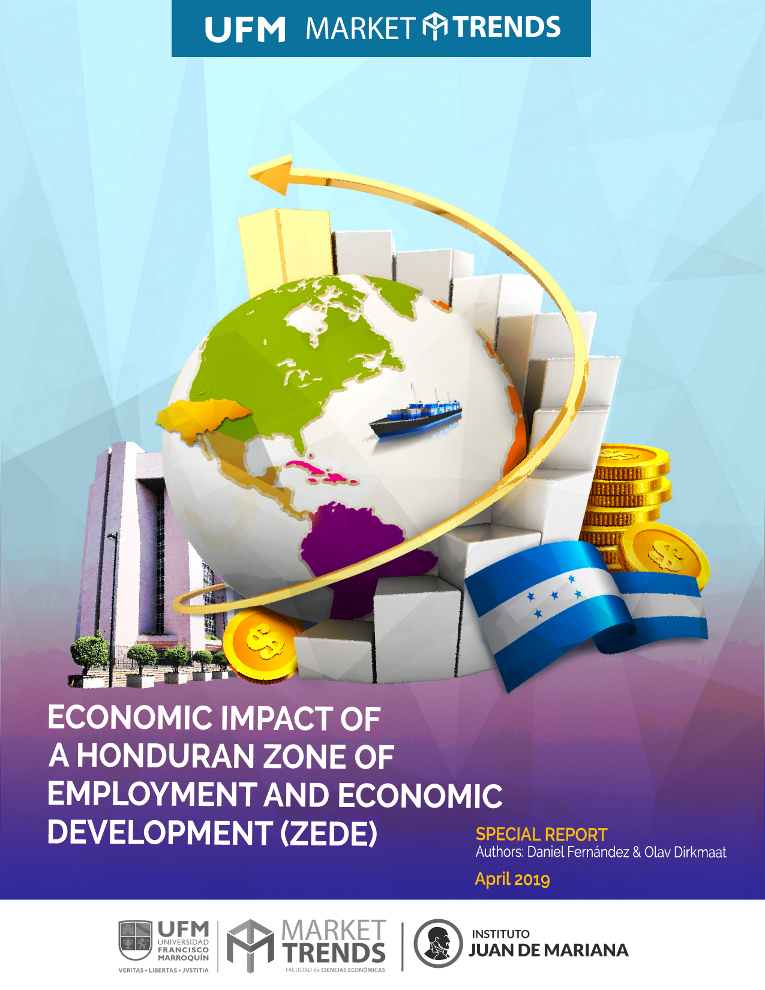Honduras is far from being on track to become a developed country. At its current pace, it will take 160 years for Honduras to achieve a similar GDP per capita to that of the United States today. Yet there seems to be little hope for a top-down shift in policies and meaningful improvement of Honduras’s present-day institutions.
Nonetheless, the successful implementation of an SEZ could change this pessimistic outlook.
In this study, we attempt to estimate the (potential) impact of a successful ZEDE in Honduras on the material well-being of its citizens, as well as providing a list of policy recommendations to achieve a successful ZEDE. If implemented successfully, a ZEDE could empower a significant group of Hondurans and achieve meaningful GDP growth over the coming decades.
Contents
- Special Economic Zones
- SEZs
- Successful SEZ´s in China
- Successful SEZ´s in the United Arab Emirates
- Failed SEZ´s initiatives
- Impact of a ZEDE in Honduras
Author
- Daniel Fernández
Daniel Fernández is the founder of UFM Market Trends and professor of economics at the Francisco Marroquín University. He is a PhD candidate in Applied Economics at the Rey Juan Carlos University in Madrid and was also a fellow at the Mises Institute. He holds a master in Austrian Economics the Rey Juan Carlos University and a master in Applied Economics from the University of Alcalá in Madrid.
- Olav Dirkmaat
Olav Dirkmaat is professor in economics at the Business School of Universidad Francisco Marroquín. Before, he was VP at Nxchange and precious metals analyst at GoldRepublic. He has a PhD in Economics from the King Juan Carlos University in Madrid. He has a master in Austrian Economics from the same university, as well as a master in Marketing Strategy from the VU University in Amsterdam. He is also the translator of Human Action of Ludwig von Mises into Dutch. He has a passion for investing, and manages funds for relatives, looking for investment opportunities in markets that are extremely over- or undervalued.



